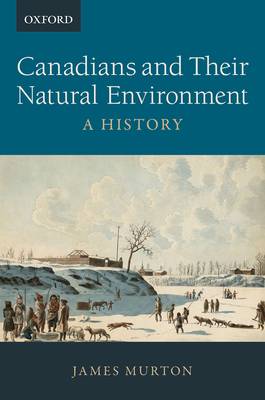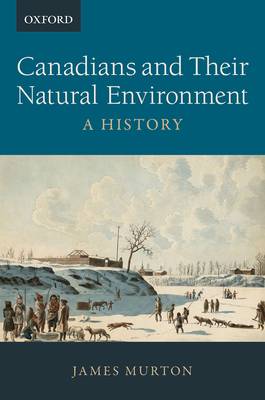
Nos liseuses Vivlio rencontrent actuellement des problèmes de synchronisation. Nous faisons tout notre possible pour résoudre ce problème le plus rapidement possible. Toutes nos excuses pour la gêne occasionnée !
- Retrait gratuit dans votre magasin Club
- 7.000.000 titres dans notre catalogue
- Payer en toute sécurité
- Toujours un magasin près de chez vous
Nos liseuses Vivlio rencontrent actuellement des problèmes de synchronisation. Nous faisons tout notre possible pour résoudre ce problème le plus rapidement possible. Toutes nos excuses pour la gêne occasionnée !
- Retrait gratuit dans votre magasin Club
- 7.000.0000 titres dans notre catalogue
- Payer en toute sécurité
- Toujours un magasin près de chez vous
48,45 €
+ 96 points
Description
The book is a history of how people in the territory that is now Canada have interacted with all that is non-human since the last ice age. It takes as its jumping off point the idea that the primary human interest in nature is getting the resources needed to survive: in other words, food and shelter. So concentrating on the ways in which societies in what we now call Canada have shaped access to nature in order to achieve subsistence (or survival), and the things that flow from that allows us to understand much of the human-nature relationship in this place over time. The book starts with the retreat of the glaciers and the assembling of the natural environment of Canada. It then looks at the means of survival and the different impacts on the land of Indigenous people and of pre-industrial European colonizing societies. Industrial capitalism in the later nineteenth century encouraged a new ordering and control of nature, while science both facilitated and challenged this and its effects. The latter half of the book examines the results: a massive re-engineering of nature, the development of new chemicals and materials and their presence in the environment as waste and pollution, the conservation, preservation and environmental movements, and the attempts, up to our present-day and including the crisis of climate change, to reconcile economic development with environmental protection. The book is written in a lively style that will be accessible to undergraduate students. It features a further reading section that both students and scholars new to the field will find useful and over 65 maps and illustrations. It is the first such book to propose an overall framework for understanding Canadian environmental history.
Spécifications
Parties prenantes
- Auteur(s) :
- Editeur:
Contenu
- Nombre de pages :
- 352
- Langue:
- Anglais
Caractéristiques
- EAN:
- 9780199025466
- Date de parution :
- 14-06-21
- Format:
- Livre broché
- Format numérique:
- Trade paperback (VS)
- Dimensions :
- 155 mm x 234 mm
- Poids :
- 544 g







